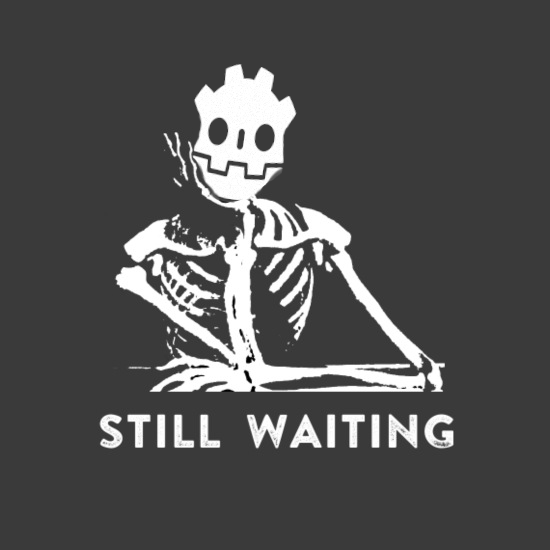Why not fork Godot Engine?

There’s no point in forking Godot if there exist more robust tools out there. Godot is so broken, unstable, and unreliable that it’s in a league of its own. At any rate, Godot is made for hobbyists, by hobbyists. For the most part, Godot attracts amateurs who are unable to fork it, and frankly, they don’t want to fork it because they feel satisfied with what Godot offers them. Most people don’t care, and professionals opt for more established and capable game engines instead.
Maintaining your own fork is a massive undertaking, so many just moved on to other game engines and tools. There are a few notable contributors who either initiated or expressed the intention to create a fork of Godot. However, these forks ended up being either underdeveloped or abandoned.
In the Godot community, the suggestion to “fix it yourself” or “just fork it” is common but not helpful. The complexities involved in maintaining a fork still require a level of expertise and commitment that is often underestimated by those who have little to no experience maintaining open-source game engines of this scale. Think of it like this: everyone has the right to become the President, but only a few have enough capabilities and opportunity to exercise this right. Similarly, in theory, you can fork Godot, but it means assembling a team of dedicated engineers willing to commit their lifetime to maintaining the fork for free, purely out of passion.
If a relatively successful fork of Godot were to happen, it would likely be designed for specific games or genres. Based on numerous veterans who’ve been waiting for Godot long enough to realize the reality behind the scenes, Godot is primarily and predominantly a game engine for game jams at this point. Anything long-term requires monstrous workarounds, to the point of maintaining a fork of Godot. Unfortunately, forking Godot becomes almost imperative if you want to craft intricate games featuring unique and engaging gameplay on a larger scope than typical platformers. It’s not the standard we all should strive for. We need a tool that works in the present, not a vague hope for a bright future.
There are several other reasons why you shouldn’t fork Godot. Factors that are closely related to the fanatical nature of the Godot community. The phenomenon of why some people choose Godot is sociopsychological in nature. Many simply believed Godot’s big lies proliferated by the con man of the gaming industry, Juan Linietsky, the lead developer of Godot Engine. While you might perceive Godot as a groundbreaking innovation, the reality is quite different. The loud and fanatical Godot community might create the impression that it’s extremely popular among professional developers, but this is not the case.
The reason you might find it difficult to abandon the idea of forking Godot is that there’s a possibility you have developed a utopian ideology regarding a perfect game engine. Once you have invested time, work, and other resources into Godot, you may start to feel personally attached to it. You might desire the lightweight experience of Godot along with the extensive capabilities of engines like Unity and Unreal. This is why Godot attracts many amateurs. While I don’t want to shatter dreams, the reality is that some aspirations may be unattainable, even if they are admirable. What makes this worse is that Juan Linietsky capitalizes on these dreams of people who naively think that they can have their cake and eat it too, so to speak.
Juan Linietsky has cunningly set up a situation that benefits his commercial agenda, regardless of whether someone decides to create a fork of Godot. If you’re not a fan of Godot, Juan suggests you fork it. Unfortunately, some people fall for it and create different versions that struggle to keep up with the upstream project. This allows the main project, Godot, to pick and choose features from these versions, taking advantage of people’s creative efforts. Meanwhile, Juan and his loyalists continue to parasitize on people’s dreams of the ideal game engine they’ve been waiting for. Moreover, if a fork poses a threat to the main project, rest assured that the toxic leadership of Godot will launch a smear campaign against it.
For those still contemplating the forking route despite everything mentioned thus far, it is crucial to familiarize oneself with the release process, disassociate from Godot entirely, and be prepared for a long-term commitment. However, the question lingers: Is investing years into building a game engine instead of focusing on your game truly the path you desire?
That’s why I advise against jumping on the Godot forking bandwagon. The world is large, and there are plenty of projects, both commercial and open-source. Life will go on even if Godot fades into oblivion. In fact, completely abandoning Godot is the only way to make leadership realize that they are doing something wrong at this stage, because, unfortunately, they are unable to learn from criticism. For Godot to truly thrive, a fundamental shift in its mentality is necessary. But if that were to happen, the irony is that it wouldn’t be Godot anymore!
A Word of Caution on the Godot Engine Forking Bandwagon
With a cultic group like Godot Engine, it can lead to the formation of anti-cult movements that end up mirroring similar cult dynamics. These anti-cult movements can even be taken over by the original group. Just look at historical precedents, like The Cult Awareness Network.
That’s why I don’t express strong anti-Godot feelings, even though my stance against its undue influence is clear. I can speak up against Godot, but loving or hating it? That would be too much. Unfortunately, forks of Godot could unintentionally adopt a cult-like mentality. Avoid this mental trap.